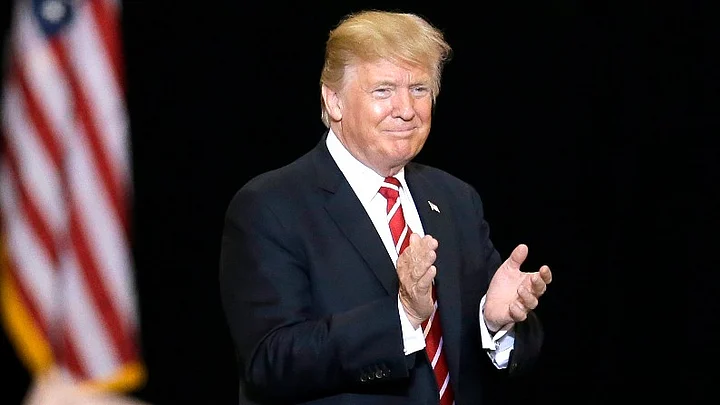The US Supreme Court on Tuesday, 26 June handed Donald Trump one of the biggest victories of his presidency, upholding his travel ban targeting several Muslim-majority countries and rejecting the idea that it represented unconstitutional religious discrimination.
The 5-4 ruling, with the court's five conservatives in the majority, ends a fierce fight in the courts over whether the policy represented an unlawful Muslim ban. Trump can now claim vindication after lower courts had blocked his travel ban announced in September, as well as two prior versions, in legal challenges brought by the state of Hawaii and others.
The court held that the challengers had failed to show that the ban violates either US immigration law or the US Constitution’s First Amendment prohibition on the government favoring one religion over another.
Writing for the court, Chief Justice John Roberts said that the government "has set forth a sufficient national security justification" to prevail.
"We express no view on the soundness of the policy," Roberts added.
The ruling affirmed broad presidential discretion over who is allowed to enter the United States. It means that the current ban can remain in effect and that Trump could potentially add more countries. Trump has said the policy is needed to protect the country against attacks by Islamic militants.
The current ban, announced in September, prohibits entry into the United States of most people from Iran, Libya, Somalia, Syria and Yemen. The Supreme Court allowed it to go largely into effect in December while the legal challenge continued.
Roberts said the actions taken by Trump to suspend entry of certain classes of people were "well within executive authority and could have been taken by any other president - the only question is evaluating the actions of this particular president in promulgating an otherwise valid proclamation."
The challengers have argued the policy was motivated by Trump’s enmity toward Muslims and urged courts to take into account his inflammatory comments during the 2016 presidential campaign.
Moment of Profound Vindication: Trump
Trump on Tuesday said the Supreme Court's ruling upholding his travel ban targeting several Muslim-majority countries was a victory for Americans and "a moment of profound vindication" for his policy.
"Today’s Supreme Court ruling is a tremendous victory for the American people and the Constitution," he said in a statement. "This ruling is also a moment of profound vindication following months of hysterical commentary from the media and Democratic politicians who refuse to do what it takes to secure our border and our country."
Trump as a candidate called for "a total and complete shutdown of Muslims entering the United States."
In dissent, liberal Justice Sonia Sotomayor said there were "stark parallels" with the court's now discredited 1944 decision that upheld US internment of Japanese-Americans during World War II. Sotomayor described at length various statements Trump made on the campaign trail.
"Taking all the evidence together, a reasonable observer would conclude that the proclamation was driven primarily by anti-Muslim animus," Sotomayor added.
The travel ban was one of Trump's signature hardline immigration policies that have been a central part of his presidency and "America First" approach. Trump issued his first version just a week after taking office, though it was quickly halted by the courts.
Chad initially was on the list of countries targeted by Trump that was announced in September, but he removed it on 10 April. Iraq and Sudan were on earlier versions of the ban. Venezuela and North Korea also were targeted in the current policy. Those restrictions were not challenged in court.
Trump also has moved to rescind protections for young immigrants sometimes called Dreamers brought into the United States illegally as children, acted against states and cities that protect illegal immigrants, ended protected status for certain immigrants in the country for decades, intensified deportation efforts and pursued limits on legal immigration.
Trump last week retreated on his administration's practice of separating the children of immigrants from their parents when families were detained illegally entering the United States.
